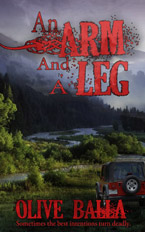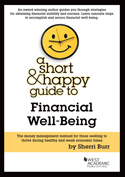by Olive Balla
 It’s a cousin to Buyer’s Remorse, which my friend and constant companion Google defines as an emotional response to a purchase. Feelings like regret, fear, depression, or anxiety. You know—the letdown that grabs the buyer by the throat immediately after he’s spent a pile of money on something he just knew he wanted more than anything.
It’s a cousin to Buyer’s Remorse, which my friend and constant companion Google defines as an emotional response to a purchase. Feelings like regret, fear, depression, or anxiety. You know—the letdown that grabs the buyer by the throat immediately after he’s spent a pile of money on something he just knew he wanted more than anything.
But the feelings accompanying what I’ve dubbed Writer’s Remorse go beyond those just mentioned. Although depression is definitely part of it, the feeling is more of—as Peggy Lee crooned in the golden oldie of the same name—Is that all there is?
Regardless of what it’s called, I’ve been suffering from it.
After working for six years on my novel—six years, during which I thought about it constantly, jotted down snippets of overheard conversations to pepper into the dialogue, basically lived, breathed, and showered with it—the thing is suddenly finished. I’ve polished, rewritten, edited, and re-edited, and then found a beta reader who was a professional editor in a past life. It’s the best I can do.
But just as with the sudden cessation of any other perpetual activity, the completion of my novel left a void. I just didn’t know what to do with myself.
So I checked in with my online chat group of writers. I told them of the unexpected feelings of loss that have accompanied my novel’s completion. I poured out all my writer angst, certain that what I was going through was an anomaly. And a little fearful for my sanity. (Okay, maybe a bit melodramatic, but I was concerned.) I wondered if Stephen King had ever struggled with letting go of one of his twisted babies.
The responses that came pouring in from my colleagues boosted my morale. One savvy writer said that I have a case of what is basically empty-nest syndrome. She said I’m missing my characters. That they became an integral part of my life, and now I’m grieving their loss. And that feels about right.
Having raised three actual children, I must admit that the feelings I was experiencing were akin to those of giving birth, raising the child, and then watching her walk away to seek her fortune in the world without so much as a backward glance. The whole process was accompanied with the bittersweet knowledge that it’s all part of the beat of life—that once you’ve done your job, your services will no longer be required.
After all, I spent over half a decade scheduling my life around my writing time. I’d waken early, hurry to eat breakfast, and then happily lock myself away into my writing space—what author Elizabeth Sims calls getting into garret mode. I closed myself off to the here-and-now, completely immersed myself in a different dimension, and then for the next couple of hours I alternately dug through the darkness and marveled at the brilliant nobility of our human nature.
And then I was stricken with an energy-sucking ennui. I walked aimlessly around the house in search of something—I didn’t know quite what. Judging by the way my husband took to surreptitiously watching me out of the corner of his eye, I suspected my behavior verged on something clinical.
So I again approached my writer friends—much cheaper and less time consuming than therapy.
Within minutes, commiserations flew back across the ether and into my waiting arms. I wasn’t alone. Other writers had suffered the same feelings.
Several of them told me to get back on the horse and start another novel. Others said I should take a break and do something totally un-writer-like for several weeks before rolling up my sleeves and giving myself over to the birthing pangs of a new story.
I decided to do both. First, with unwavering determination, I powered down every piece of computer hardware in my house that could even remotely be used for word processing. And then, with an unexpected sense of freedom, I accompanied my husband on a road trip to Mount Rushmore.
The glorious scenery that flew past our car windows, the rest stops where I overheard people speaking about everything from ingrown toenails to saving wild horses, all sparked dozens of ideas, which I verbalized into the tiny digital recorder I’d snuck into my bag. I know, I know, I cheated. But the change of scenery was like a cool drink of water on my parched writer’s tongue, and I was overcome with a renewed joy in my chosen field of endeavor.
Once home, I replayed and then transcribed my recorded observations and comments. What if… and Yes, and then… cavorted and tumbled elbows over arse through my electrified imagination. I made more notes.
But I still didn’t have the heart to begin a new novel. At least, not until this morning.
Today I awakened to my Protagonist’s index finger tapping me on the forehead. She was yammering away about a woman who just moved from South Dakota and into the house across the street.
“She’s having trouble sleeping because of weird noises coming from her basement,” said my Protagonist around a mouthful of leftover welcome-to-the-neighborhood brownies.
“Aha,” I said. “Weird noises coming from her basement? That’s good. Then what if…”
And we’re off.
 Olive Balla, author of suspense novel An Arm and a Leg, is mother of 3, grandmother to 13, great-grandmother of 4, a retired educator, and part-time professional musician. Having been everything from secretary at a used car dealership, a university student, and a high school Spanish teacher, Balla states her characters are, in part, amalgamations of people she’s met. Living with her husband Victor in the Albuquerque area, she spends her spare time in a small woodworking shop designing and building everything from breadboxes and wine racks, to a porch bench. Visit her website at omballa.com.
Olive Balla, author of suspense novel An Arm and a Leg, is mother of 3, grandmother to 13, great-grandmother of 4, a retired educator, and part-time professional musician. Having been everything from secretary at a used car dealership, a university student, and a high school Spanish teacher, Balla states her characters are, in part, amalgamations of people she’s met. Living with her husband Victor in the Albuquerque area, she spends her spare time in a small woodworking shop designing and building everything from breadboxes and wine racks, to a porch bench. Visit her website at omballa.com.
This article was originally published in the March 2014 issue of SouthWest Sage and is reprinted here by permission of the author.



























